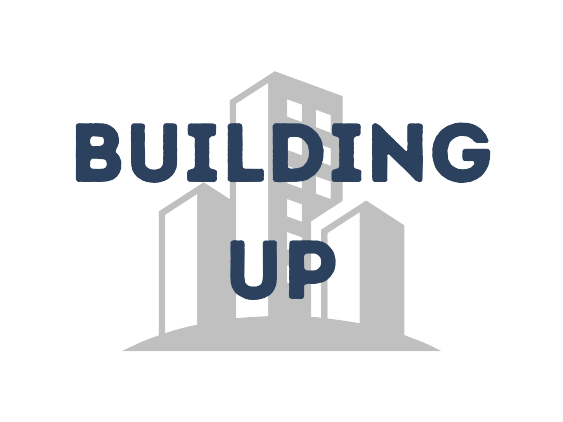The Power of Truth
Self-Assessment: The Power of Truth
Please take a few moments to answer the following self-reflection questions. Where can you identify opportunities for personal growth in your leadership?
How do I ensure that my team feels safe to express their honest opinions, even if they differ from my own?
Am I transparent about the goals and objectives of our projects and initiatives?
Have there been moments in my leadership role where I chose not to be fully truthful? What were the outcomes?
In what ways do I practice transparency in my decision-making processes and communication with my team?
Do I provide accurate and truthful information to my team, even when it's difficult?
How do I respond when I realize I’ve made a mistake or a poor judgment?
Do I share both successes and failures openly with my team to build trust?
How do I demonstrate authenticity in my leadership and interactions with my team?
Remember, this self-assessment is just a starting point for understanding Trust as a leader. It's essential to reflect on your responses and actively work on areas where improvement is needed. Additionally, seeking feedback from others and working with your ECFL Leadership Coach can provide valuable insights into your emotional intelligence strengths and weaknesses.
“Whoever is careless with the truth in small matters cannot be trusted with important matters.”
Truth is not only revealed in the words we speak but also in the actions we take. Embracing authentic integrity means aligning our words and actions consistently.
As leaders at MSS, trust matters. Exemplifying truth in our daily actions, attitudes, and behaviors creates a foundation for trust within our organization. We understand that trust is built over time and may take days, months, or even years to fully develop. Unfortunately, we also recognize that in just a few moments, misunderstandings can undo all the work we’ve done to establish trust.
For leaders, this is a critical reminder as you navigate your day-to-day interactions. Our actions, behaviors, and words matter. Being truthful means choosing to be honest, authentic, and transparent, which can be challenging amid the daily demands of leadership. In this session, we will explore how honesty—telling the truth; authenticity—being true to oneself; and transparency—being open and accountable are essential components leaders need to demonstrate truthfulness.
Take a few minutes to read Hans Christian Andersen’s tale “The Emperor’s New Clothes.” As you read, consider how this story relates to honesty, authenticity, transparency, and demonstrating truthfulness.
Once upon a time, there was an emperor who loved clothes. He spent all his money on fancy outfits and cared more about his wardrobe than anything else.
One day, two tricksters came to the emperor's city. They claimed to be weavers and said they could make the most beautiful clothes in the world. But these clothes were special—they were invisible to anyone who was stupid or not fit for their job.
The emperor was very excited. He thought, "If I wear these clothes, I'll be able to tell who in my kingdom is unfit for their job or foolish." So he gave the weavers a lot of money to start their work.
The tricksters set up looms and pretended to weave, but they didn't really do anything. Instead, they just pocketed the money and asked for more silk and gold thread, which they also kept for themselves.
Soon, the emperor was curious about how the clothes were coming along. He sent his most trusted minister to check on the weavers' progress. The minister went into the room, but all he saw were empty looms. He thought, "I can't see anything! Does this mean I'm stupid or unfit for my job?" But he didn't want to admit it, so he praised the weavers and told the emperor how beautiful the clothes were.
The emperor sent more officials to see the clothes, and they all saw nothing but empty looms. However, they also didn't want to seem foolish, so they all praised the invisible fabric.
Finally, the emperor himself went to see the clothes. He stared at the empty looms and thought, "Am I stupid? Am I unfit to be emperor?" But he didn't want anyone to think badly of him, so he said the clothes were marvelous.
The day came for the emperor to wear his new clothes in a grand parade. The tricksters pretended to dress him in the invisible outfit. The emperor looked at himself in the mirror and thought, "I can't see anything, but I must go along with it."
The emperor walked through the city in the parade, and all the people who had heard about the special clothes pretended to admire them. They didn't want to seem foolish either. But then, a little child, who didn't know about the magic clothes, called out, "The emperor has no clothes on!"
Everyone started whispering and soon realized the child was right. The emperor was embarrassed, but he continued to walk proudly through the parade. He knew everyone could see he was wearing nothing, but he had to finish the procession.
The tricksters had already left the city with all the emperor's money, and the emperor learned a valuable lesson about honesty and pride.
“Oh what a tangled web we weave
When first we practice to deceive!”
A truthful leader is inherently a trusted leader. Your commitment to honesty, authenticity, and transparency fosters trust and credibility, creating a solid foundation for effective leadership. In “The Emperor’s New Clothes,” there are several reminders for leaders reflecting on truthful practices.
A key example is the child's statement: “The Emperor has no clothes!” The child’s honesty cuts through self-deception, highlighting the importance of telling the truth even when it's difficult. The Emperor's advisors and subjects pretended to see the clothes out of fear, but the child's truth brought reality to light.
As a leader, encourage a culture of honesty by modeling open communication and creating a safe space for truth-telling. Seek advice from those willing to provide honest and constructive criticism. The Emperor surrounded himself with "yes people" who told him what he wanted to hear rather than what he needed to hear.
Remember, honesty builds trust, which is essential for successful collaboration. People need to trust that the information they receive is accurate and that others are fulfilling their responsibilities. By acknowledging and learning from mistakes, you encourage your team to be open about their own missteps instead of hiding them.
Honesty is a commitment to truth, even when it’s difficult or inconvenient. It reflects your character and values.
Leadership is about authenticity—aligning what you believe with how you act. Relying on half-truths and ambiguity creates cynicism and disengagement, breaking down trust.
The Emperor’s obsession with appearances over substance led to self-deception and a loss of trust. By continuing the lie, he damaged both his credibility and authority.
The Emperor’s Actions That Broke Trust:
Letting Vanity Cloud Judgment: The Emperor’s focus on appearance made him vulnerable to deception. Leaders must avoid letting pride or vanity influence their decisions.
Suppressing Independent Thinking: The Emperor’s court fell into groupthink, where no one wanted to admit they couldn’t see the clothes. Leaders should encourage independent thinking and listen to diverse perspectives.
Failing to Evaluate Information Critically: The Emperor accepted the weavers’ claims without question, leading to his public humiliation. Leaders should analyze information carefully and remain skeptical of overly perfect solutions.
Creating a Culture of Fear: Fear of being labeled unfit or foolish silenced everyone. Leaders should create an environment where people feel safe to share their thoughts and concerns without fear of retaliation.
Once the child's truth was spoken—"The Emperor has no clothes on!"—authenticity prevailed. Leaders should be champions of authenticity, embracing their role in cultivating truth through transparency.
Ask yourself:
How can I be the champion of truth?
How vigilant am I in defense of the truth?
What actions must I take to preserve the bond of trust?
This tale reminds us that integrity and honesty are fundamental to building and maintaining trust. It also teaches the importance of transparency in cultivating a culture of truth. lack of honest communication and transparency can leave leaders uninformed and hinder their decision-making. The Emperor’s tale shows that deception and silence lead to poor decisions, while clarity and truth enable better outcomes.
To embody the principles of truth and avoid the mistakes shown in The Emperor's New Clothes, leaders must actively build trust through truthfulness and transparency. By applying the following best practices, you can create a culture where honesty and integrity are valued and strengthened:
Best Practices for Demonstrating Truthfulness
Display Transparency in Decision-Making: Share the rationale behind decisions, especially those that impact employees directly. When people understand the reasoning behind decisions, they are more likely to trust and support them.
Address Issues Promptly and Fairly: When issues or mistakes arise, address them openly and fairly. Avoiding or covering up problems can erode trust. Instead, demonstrate that you are committed to learning from mistakes and improving.
Establish Clear Policies and Consequences: Clearly define policies regarding honesty and transparency, and ensure that there are consistent and fair consequences for dishonesty. This helps to set expectations and maintain accountability.
Foster a Culture of Openness and Trust: Encourage an environment where your team feels safe to express their opinions and share information without fear of repercussions. This involves building trust through consistent and fair treatment of everyone.
Recognize and Reward Honesty: Acknowledge and reward employees who demonstrate transparency and honesty. This reinforces the importance of these values and encourages others to follow suit.
When we harness the power of truth, we strengthen our leadership and our organization. Remember, trust through transparency is not just a concept—it’s a daily practice. Let us commit to being truthful leaders who build and maintain trust within our teams and throughout the organization.
To push your understanding of the Power of Truth to the next level, explore these valuable resources. They’ll help expand your skills and provide essential tools for building strong leadership.
The Advantages of Telling the Truth at Work
Mary Dowd
Cultivating Everyday Courage:
The Right Way to Speak Truth to Power
James R. Detert
Imagine a Workplace Where you Could Actually Tell the Truth
Lauren A. Taylor and David Berg









